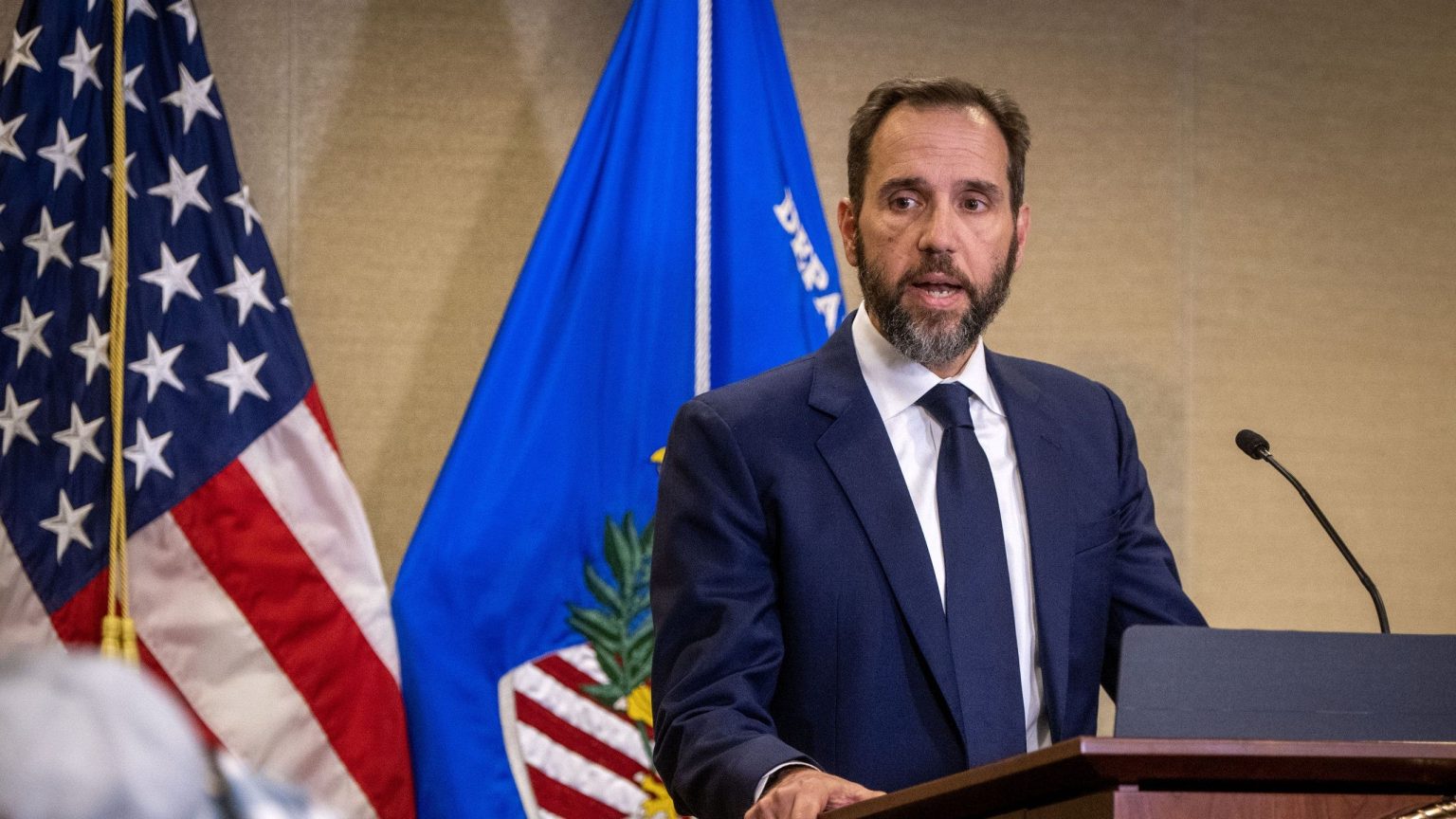Special Counsel Jack Smith’s two-year investigation into former President Donald Trump is reaching its formal conclusion with the submission of a confidential report to the Department of Justice. This report, mandated by Justice Department regulations, will summarize the findings of Smith’s dual investigations into Trump’s alleged efforts to overturn the 2020 election and his retention of classified documents at his Mar-a-Lago residence. The report will also detail Smith’s prosecutorial decisions, or lack thereof, stemming from these investigations. While the investigations explored potentially serious criminal allegations, Trump’s recent election victory introduces a significant complication, effectively precluding any immediate prosecution due to long-standing DOJ policy against indicting a sitting president.
The fate of Smith’s report now rests with Attorney General Merrick Garland, who has the sole discretion to determine its public release. Garland has previously released the reports of two other special counsels, John Durham and Robert Hur, whose investigations focused on the origins of the Trump-Russia probe and President Biden’s handling of classified documents, respectively. However, the highly sensitive nature of the Trump investigations, coupled with his status as president-elect, introduces a level of complexity not present in the prior cases, making Garland’s decision far from straightforward. The DOJ has remained tight-lipped about the report’s status and Garland’s intentions regarding its potential release, leaving the public and political sphere in anticipation.
Complicating matters further is the unresolved question of how the incoming Trump administration will handle the report if its release is deferred. Trump has consistently denounced the investigations as politically motivated “witch hunts,” pledging to swiftly dismiss Smith upon assuming office. This adversarial backdrop adds another layer of uncertainty to the report’s future and the potential repercussions of its findings. The timing of the report’s completion, coinciding with the presidential transition, throws into sharp relief the potential for political conflict and the challenge of upholding the integrity of the justice system amid a highly charged political climate.
Smith’s investigations, which resulted in indictments against Trump in both Washington D.C. and Florida, have now effectively been paused due to Trump’s election. Citing Office of Legal Counsel guidelines and a recent Supreme Court decision, Smith’s team filed motions to vacate deadlines in both cases, acknowledging the DOJ’s policy against prosecuting a sitting president. While emphasizing that this decision stems solely from the OLC policy and not from any weakening of their case, the move nonetheless places the future of these prosecutions in limbo, pending the conclusion of Trump’s presidency. This unprecedented situation raises complex constitutional questions about the balance of power and the pursuit of justice against a sitting president.
The special counsel’s December 2nd deadline for submitting final status reports to the federal judges overseeing the Trump cases marks a significant procedural step in the winding down of the investigations. These reports, separate from the comprehensive report to Garland, will likely provide updates on the status of the now-vacated cases and outline the reasons for the dismissal, without prejudice. This procedural maneuver allows the cases to be potentially revived at a later date, should the legal landscape change. The reports to the judges, while procedural in nature, nevertheless contribute to the public record and offer a glimpse into the legal complexities surrounding the investigations.
The convergence of Smith’s report, the presidential transition, and Trump’s vehemently adversarial stance creates a highly charged political and legal landscape. The report’s contents, its potential public release, and the future of the vacated indictments all remain uncertain. These uncertainties underscore the delicate balance between the pursuit of justice, the principle of executive immunity, and the potentially volatile interplay of politics and law. The coming weeks and months will undoubtedly be crucial in determining the ultimate fate of these investigations and their impact on the Trump presidency.


